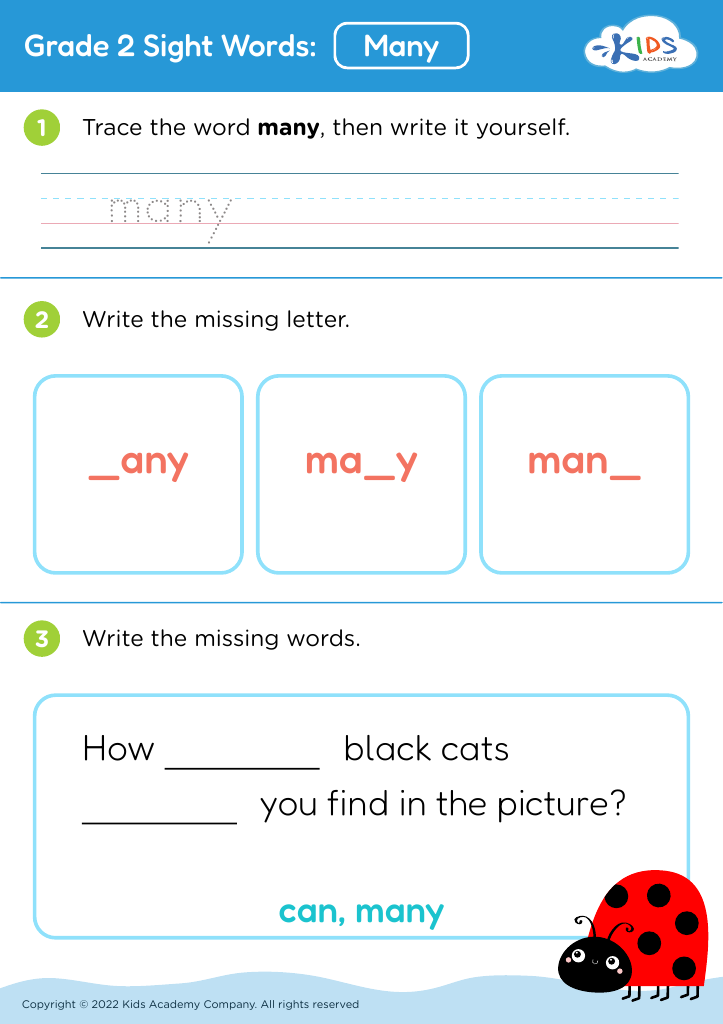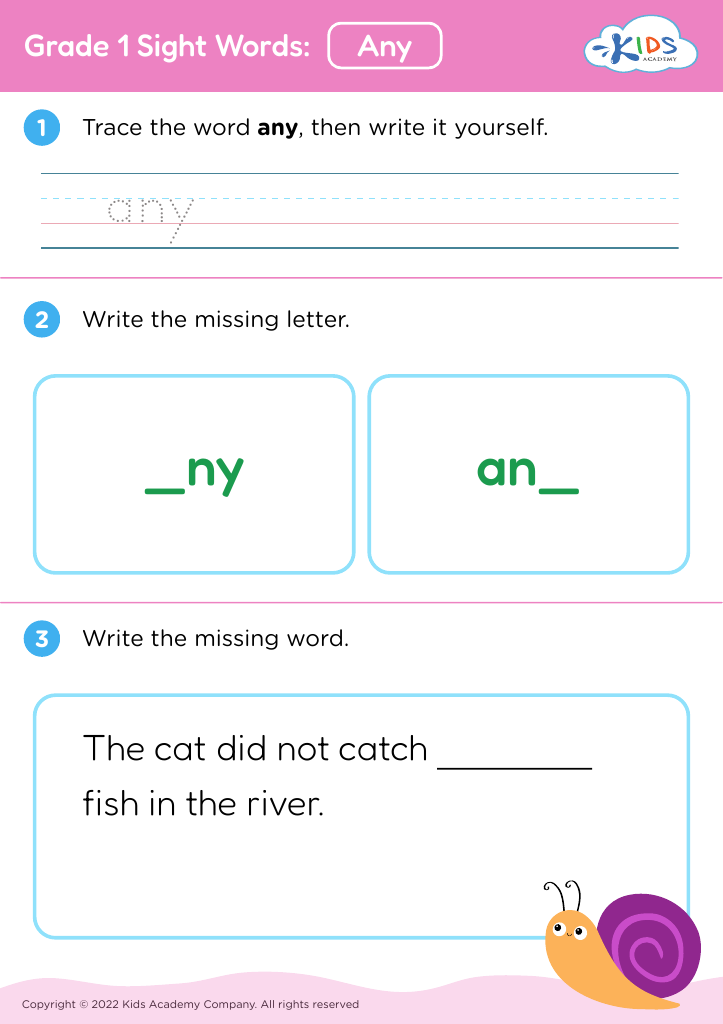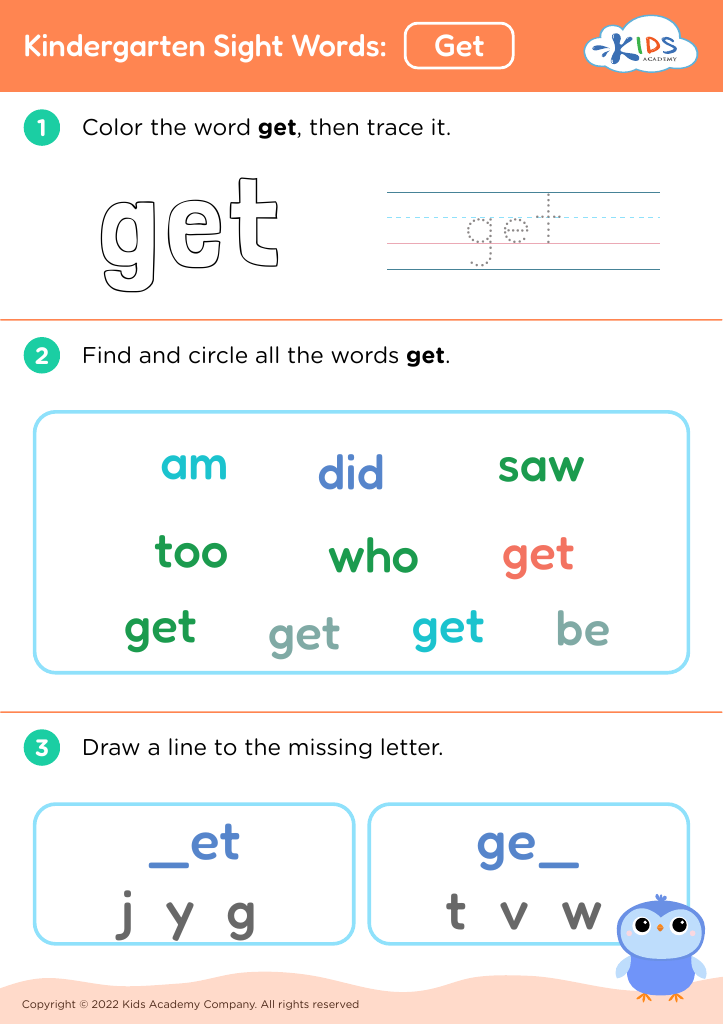Fraction simplification Building Vocabulary Worksheets for Ages 6-9
13 filtered results
-
From - To
Enhance your students' understanding of fractions with our Fraction Simplification Building Vocabulary Worksheets designed specifically for ages 6-9. These engaging and educational worksheets provide young learners with essential skills to help them simplify fractions effectively. Through a variety of interactive activities, children will build their math vocabulary, improve their problem-solving abilities, and gain confidence in working with fractions. Ideal for classroom use or at-home learning, these worksheets promote collaboration and creativity while ensuring students grasp key mathematical concepts. Equip your kids with the vocabulary and tools they need to tackle fraction simplification successively and make learning an enjoyable experience!
Building vocabulary, specifically in the context of fraction simplification, is crucial for young learners aged 6-9 for several reasons. First, understanding fractions is foundational for mathematical literacy. When children can articulate concepts related to fractions—like numerator, denominator, and equivalent—they build confidence and enhance their overall math comprehension. Simplification helps students recognize relationships between numbers, fostering critical thinking and problem-solving skills.
Moreover, mastering vocabulary related to fractions makes it easier for children to engage in discussions with teachers, peers, and parents. Vocabulary mastery empowers students to express challenges they face and articulate their reasoning, promoting active participation in learning.
Additionally, the language of fractions is interconnected with other subjects, including science and even reading comprehension. When children encounter fractions in various contexts, having a solid vocabulary allows them to transfer these skills across subjects, reinforcing their learning.
Finally, by focusing on fraction vocabulary, parents and teachers demonstrate that mathematical language is important—sending the message that math is not simply about numbers but also about the language we use to describe and understand our world. Investing in vocabulary development today supports deeper understanding and lays the groundwork for future academic success.





























